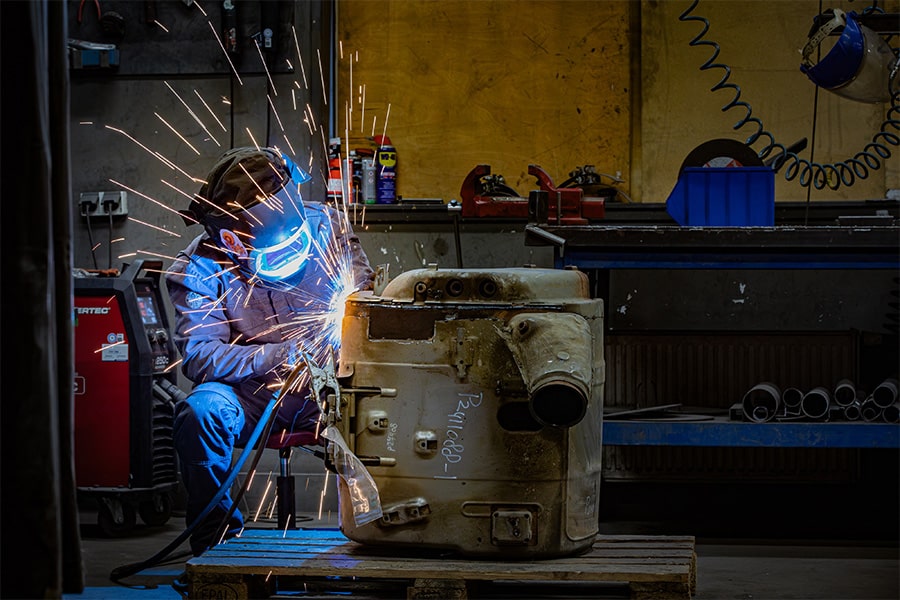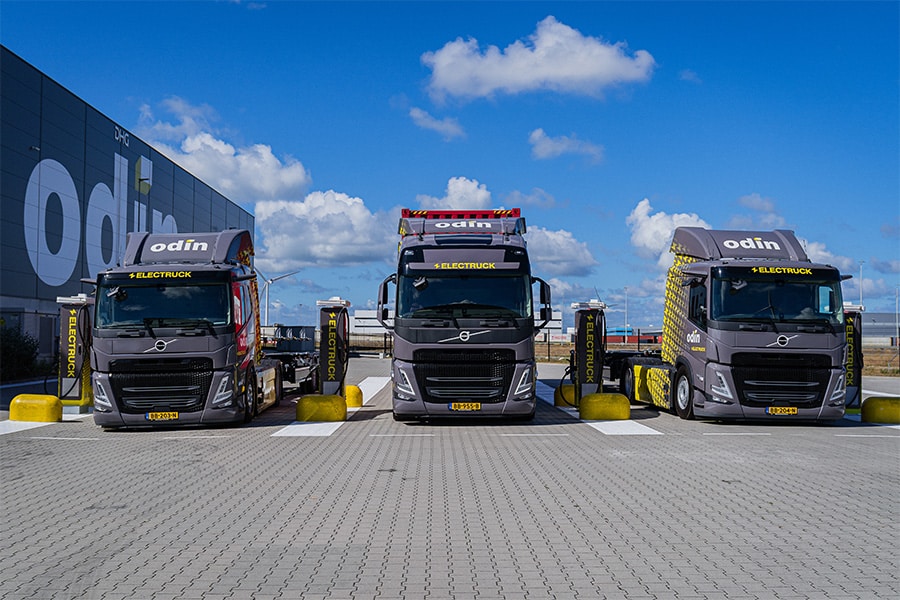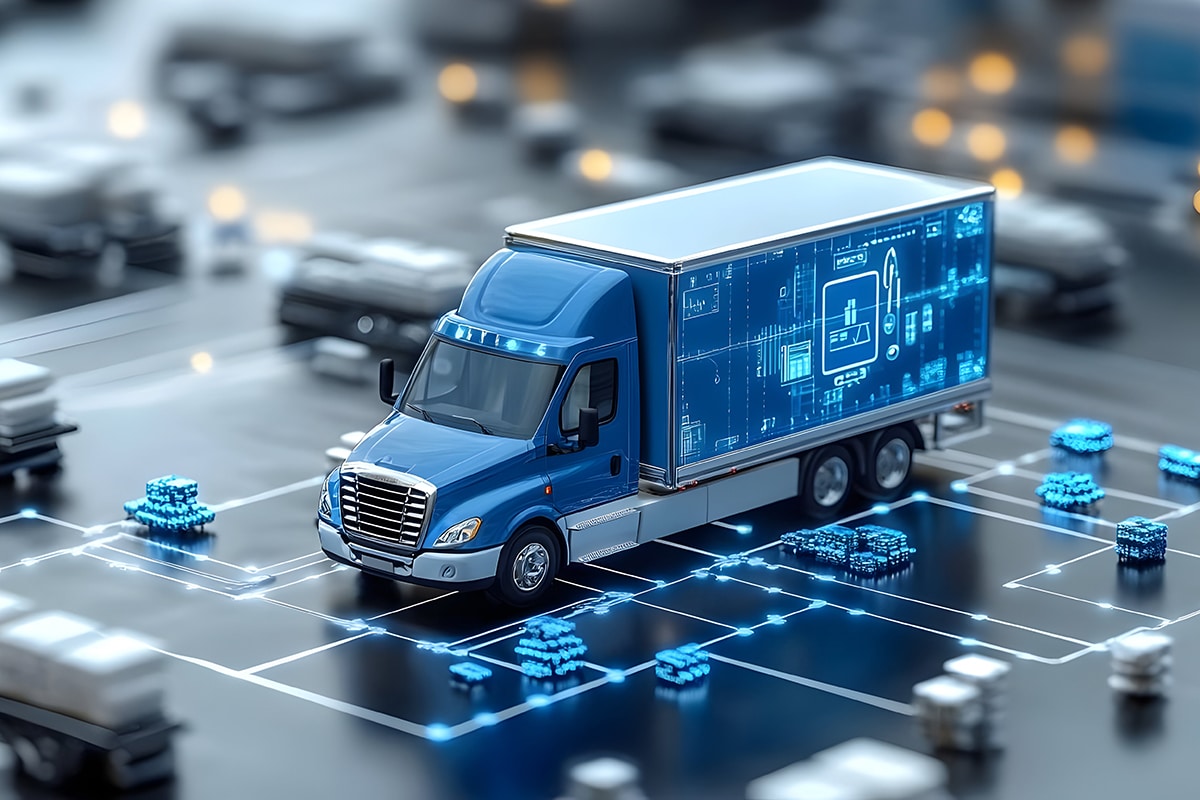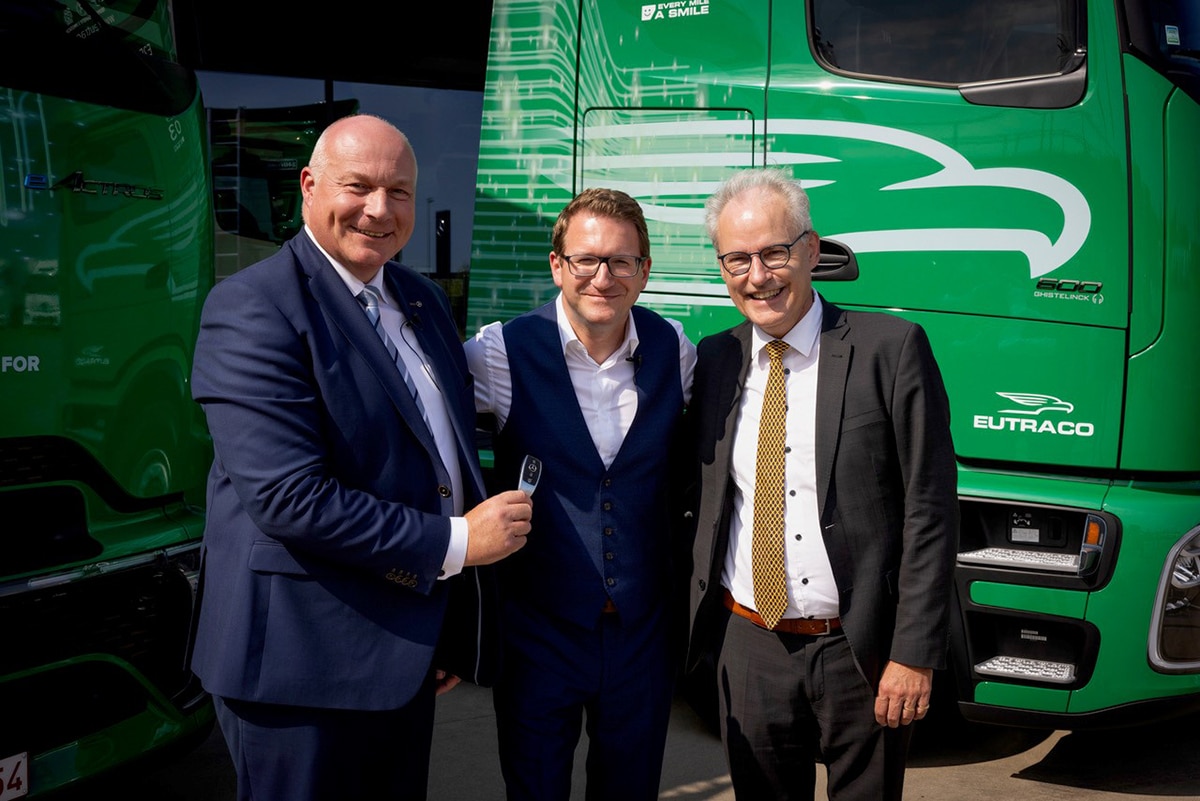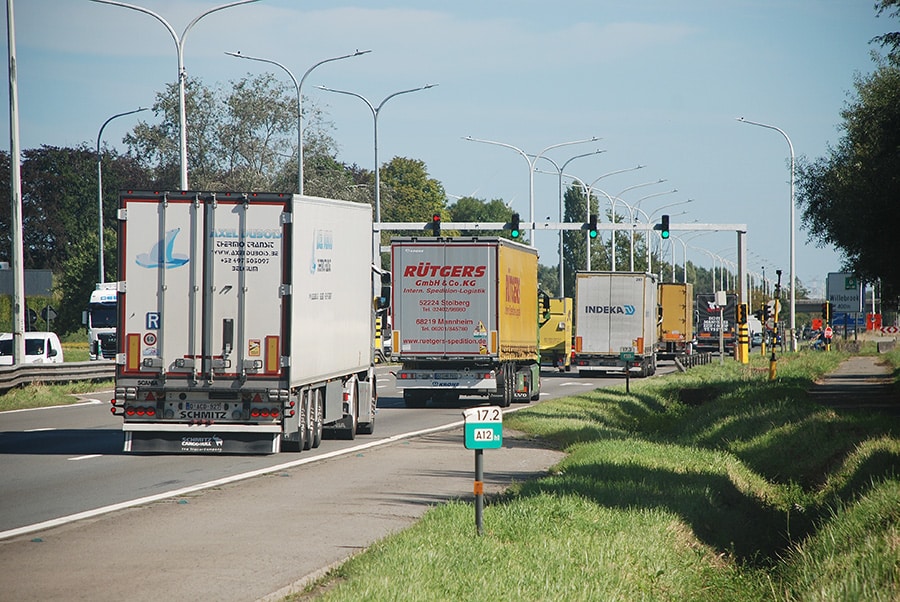
Opportunities, challenges and policy priorities for the Belgian transport sector
The Belgian transport and logistics sector is an economic pillar with over 116,000 jobs and more than 10,800 companies. But the sector faces complex challenges, such as greening, staff shortages and international competition. In its recently published Memorandum 2024, Febetra (federation of Belgian hauliers and logistics service providers) takes an in-depth look at the sector, supplemented by policy recommendations to future-proof transport companies. We spoke with Philippe Degraef, director of Febetra, about these challenges and solutions.

What are the biggest challenges currently facing the Belgian transport sector?
Degraef: "Our sector is indispensable, but we are under pressure. Climate change is forcing us to go green, while labor shortages and high labor costs threaten our competitive position. Increasing globalization makes it harder to compete with companies from countries with lower costs. In our Memorandum 2024, we emphasize from Febetra that strong cooperation between government and industry is essential to address these challenges."
Where do you see possible solutions to make the transportation sector more sustainable?
Degraef: "Reducing emissions is essential. Electric trucks, hydrogen technology and synthetic fuels offer opportunities, but the switch requires substantial investments. We call for more government support, such as subsidies and a clear strategy. There is also an urgent need for sufficient charging and refueling infrastructure. Without this foundation, greening cannot be rolled out successfully."
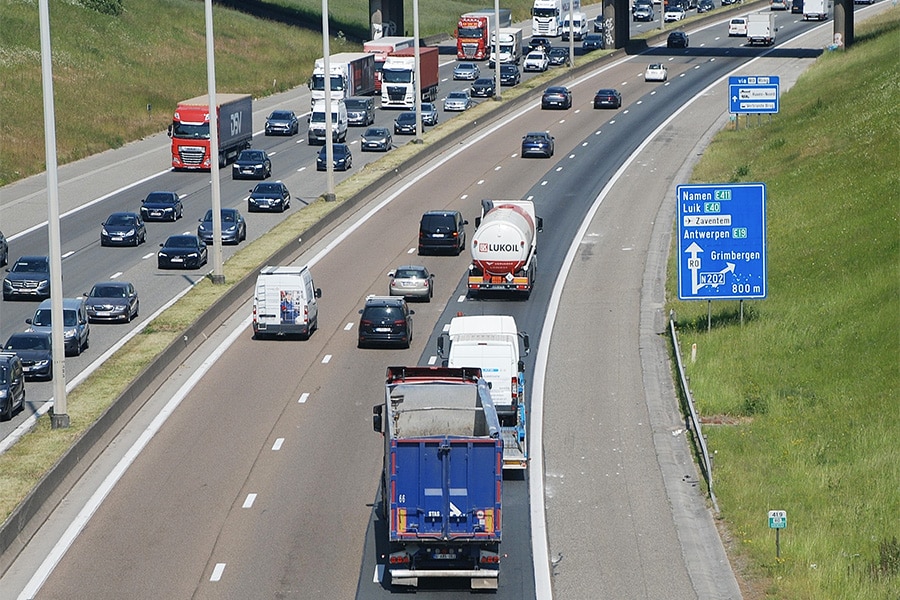
In November 2024, VIL organized the well-attended multimodal event "Job Breakers" in Mechelen. How important is the modal shift to rail and inland navigation?
Degraef: "Very important. Rail and inland navigation can reduce CO2-emissions from transportation significantly. Yet high costs for transport equipment and transshipment are an obstacle. We propose investment support and the introduction of a "transshipment voucher" to encourage companies to operate more sustainably. Febetra's Memorandum 2024 emphasizes that a more efficient modal shift also contributes to less congestion. This approach can work better than the current kilometer charge for trucks, a measure that has little impact on the congestion problem on our highways."
Can innovative solutions such as ecocombis contribute to a more sustainable sector?
Degraef: "I am absolutely convinced of that. Ecocombis can carry up to 50 percent more freight per trip and emit 33 percent less CO2 out. Unfortunately, they cannot drive everywhere in Belgium. We are asking to allow them permanently on our road network. The pilot project has been running for ten years, with evaluations that were always positive. Now it is time to put an end to this pilot project. Innovations like this can go a long way toward our climate goals."
What do you think needs to be done to improve the competitiveness of Belgian transport companies?
Degraef: "The high labor costs in our country are a major problem. We propose tax cuts, such as eliminating the withholding tax on non-productive hours. In addition, a tax cut on overtime and tax exempt night allowances may help. Maintaining excise tax recovery on professional diesel also remains necessary as long as there are no full-fledged alternatives. This is explicit in our memorandum as a priority."
Truck driver has long been a bottleneck profession. How do we address the driver shortage?
Degraef: "The driver shortage is distressing. We need to speed up administrative procedures, such as for driver cards. Flexi-jobs can also offer a solution. Through this formula, we give retirees and part-time workers the chance to help out temporarily. Finally, we need to relax the hiring rules for driving school instructors to speed up the training of new drivers. This problem is urgent and requires creative solutions."
"In a previous edition of this trade magazine, I signaled that thirty years ago, one in four truck drivers in our country was older than 45. Today this proportion has risen to a whopping 57.2 percent! The working-age population will not increase over the next 20 years in our country. For every ten workers who retire, there are only eight newcomers ready to take over their jobs. Above all, let's not be blind to this demographic reality."
What role does regulation play in these challenges?
Degraef: "Uniform regulations within Belgium are essential. The difference in standards between Flanders and Wallonia, for example for 50-ton vehicles, makes it difficult to work efficiently. At the European level, we are asking for stricter controls on cabotage rules (cabotage is the transportation of goods or passengers between two points in the same country by a company from another country. In many cases this is prohibited, ed) and posting directives to prevent unfair competition. Only with a level playing field can we remain competitive."
"In this context, targeted labor migration can be an interesting option to maintain our competitive position. Our transporters can turn more turnover, while migrant workers make themselves useful and earn better wages - according to Belgian wage conditions. Moreover, society benefits from the additional social security contributions, which of course are not there when the foreign workers work here via secondment or all kinds of shady constructions."
How does Febetra view the importance of infrastructure improvements in Belgium?
Degraef: "From our sector federation, we argue for more loading and unloading zones in urban areas and better signage for trucks. Investments in the road network are indispensable; our roads lag behind those of neighboring countries. The shortage of truck parking lots with basic facilities must also be addressed urgently. Without good infrastructure, the industry cannot function properly."
In conclusion, how do you see the future of the Belgian transport sector?
Degraef: "The transportation sector remains essential to our economy and society. With targeted investments in sustainability, innovation and labor market policy, we can overcome these challenges. Together with the various governments and companies in our country, we are working towards a sustainable and efficient future. With our Memorandum 2024, Febetra offers by all means a clear compass for the way forward, including inspiring policy makers."
